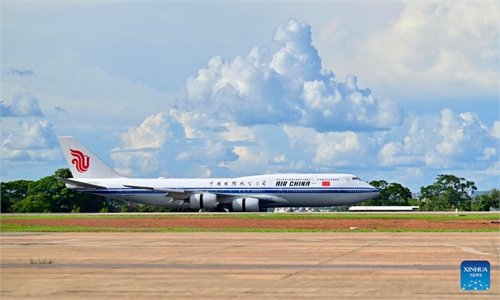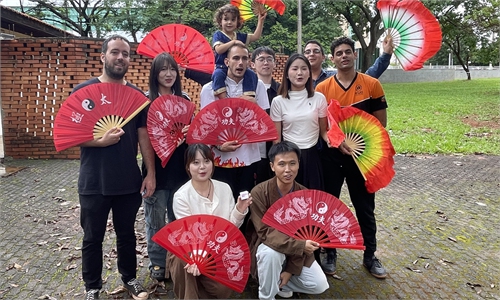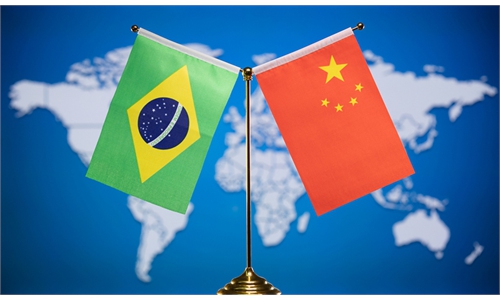Xi arrives in Brasilia for state visit to Brazil, trip to promote synergy of two countries' development strategies
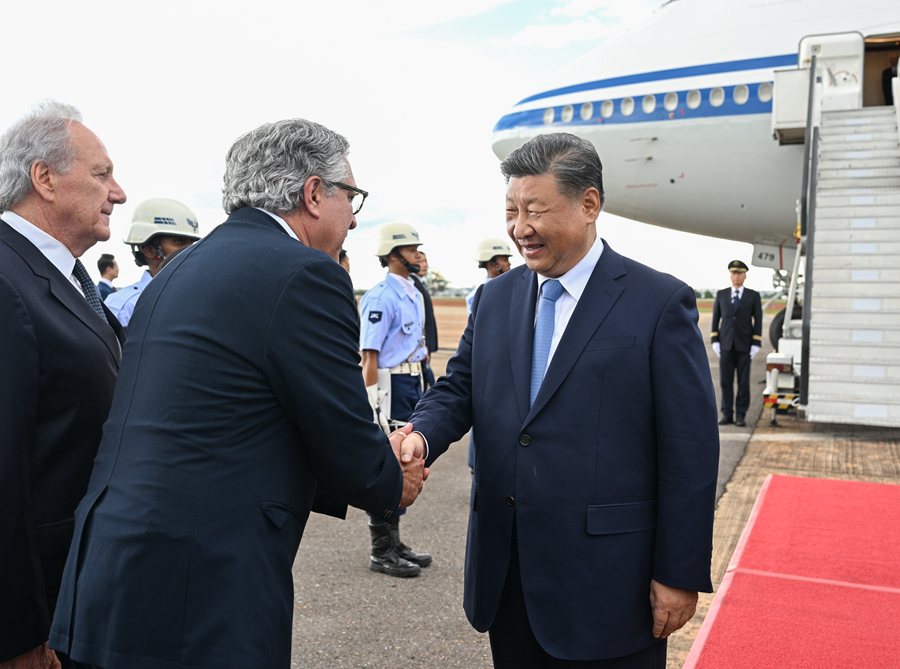
Photo:Xinhua
Chinese President Xi Jinping arrived in Brasilia on Tuesday for a state visit to Brazil after attending the 19th G20 Leaders' Summit in Rio de Janeiro.
Xi was warmly welcomed upon his arrival by the Chief of Staff of the Brazilian Presidency Rui Costa, along with several other senior Brazilian officials. An all-female local Batala band greeted him with vibrant drumbeats, dressed in full attire and brimming with enthusiasm.
Hundreds of overseas Chinese, waving Chinese national flag, gathered along the roads in Brasilia to welcome President Xi. Many expressed their excitement, believing that Xi's visit will bring the relationship between two countries even closer.
Prior to his arrival in Brasilia, Chinese president said on Sunday that he looks forward to having an in-depth exchange of views with Brazilian President Luiz Inacio Lula da Silva on further enhancing China-Brazil relations, promoting synergy of the two countries' development strategies, as well as international and regional issues of common interest.
Xi said he believes the visit will further strengthen the two countries' strategic mutual trust, deepen exchanges and cooperation in various fields and usher in a new "golden 50 years" for China-Brazil relations.
Additionally, in a signed article in Brazilian media outlet Folha de S. Paulo on Sunday, Xi said fifty years ago, on August 15, 1974, China and Brazil established full diplomatic ties. The bilateral relationship has since withstood the test of a changing international landscape and become increasingly mature and vibrant.
Brazil is the first country to establish a strategic partnership with China. It is also the first nation in Latin America to enter into a comprehensive strategic partnership with China. Xi hailed the bilateral relationship "has always been a forerunner in the relations between China and fellow developing nations."
In his article, President Xi pointed out that China and Brazil should promote synergy between China's Belt and Road Initiative and Brazil's development strategies, and we should keep enhancing the strategic impacts of our mutually beneficial cooperation, broaden its scope, and break new ground."
Xi also noted that China and Brazil should uphold openness and inclusiveness, values that are imbued in our traditions, and deepen our exchanges and cooperation in the areas of culture, education, science and technology, health, sports, tourism, and at the subnational levels.
As two of the world's major developing countries, China and Brazil "must work together with others in the Global South to resolutely safeguard the developing nations' common interests, address global challenges through cooperation, and promote a global governance system that is fairer and more equitable," Xi said in the article.
Experts anticipate that the comprehensive strategic partnership between China and Brazil will be further strengthened, as cooperation in trade, green transformation, digital economy, cultural exchanges, and political trust continues to grow.
Wang Youming, director of the Institute of Developing Countries at the China Institute of International Studies, noted that China and Brazil are expected to align their development strategies more closely and in a substantive way.
Theo Schunck, Executive Secretary of the Rio Metropolis Institute, viewed Xi's visit as a crucial step toward deepening cooperation across various sectors and building a community with a shared future.
Brazil regards China as a strategic partner, particularly in trade and technology, and the relationship has evolved from initial pragmatism to a comprehensive strategic partnership focused on economic diversification and multilateral cooperation, Schunck said.
Rodrigo Pires de Campos, a professor at the Institute of International Relations at the University of Brasília, emphasized the strategic importance of the China-Brazil relationship for Brazil's autonomy.
He noted that China and Brazil are already working together in many promising fronts such as climate change, poverty alleviation, fair trade, financial systems, and aid for development. And the state visit by Chinese leader could lead to more concrete results in the medium or longer term.
Jose Acacio Ferreira, General Director of the Superintendence of Economic and Social Studies of Bahia State, told the Global Times that the meeting between President Xi and President Lula will provide strategic guidance, further promoting cooperation and trust between the two nations on global issues.
He believes that closer China-Brazil ties will amplify the voice of the Global South in global decision-making, multilateralism, and peaceful development.
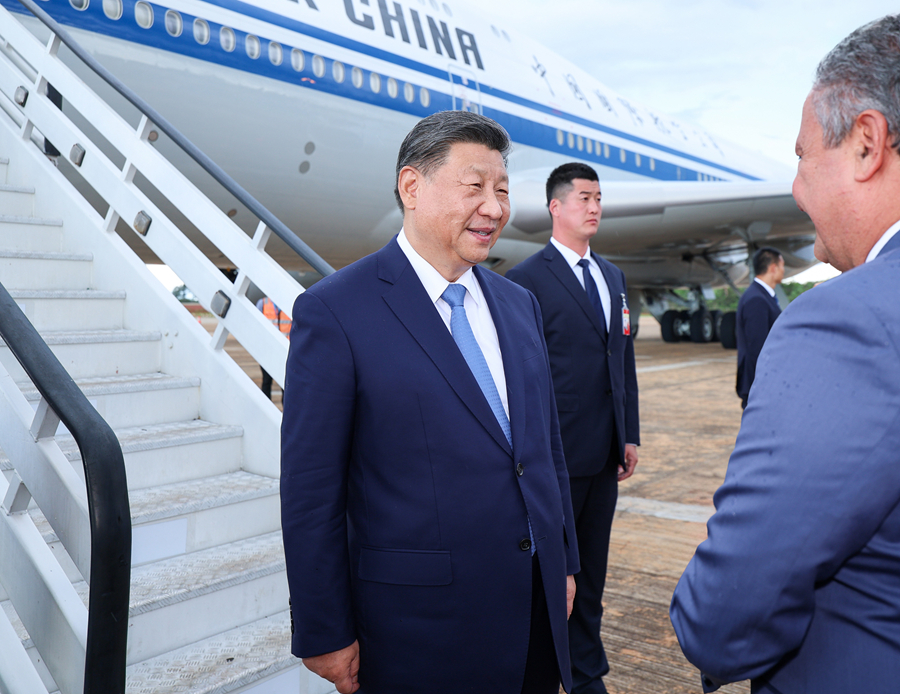
Photo:Xinhua
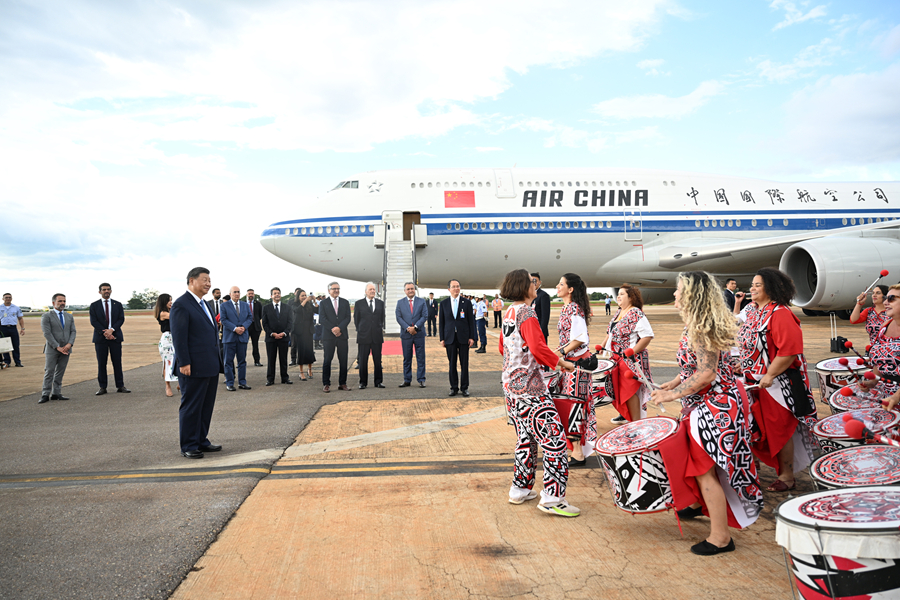
Photo:Xinhua
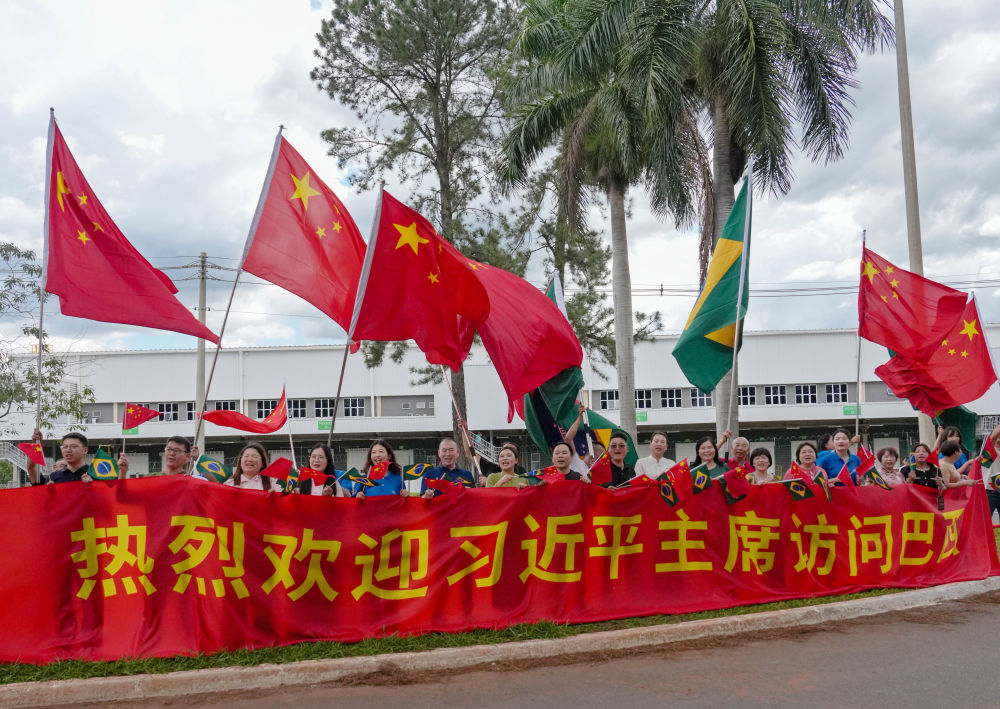
Photo:Xinhua

